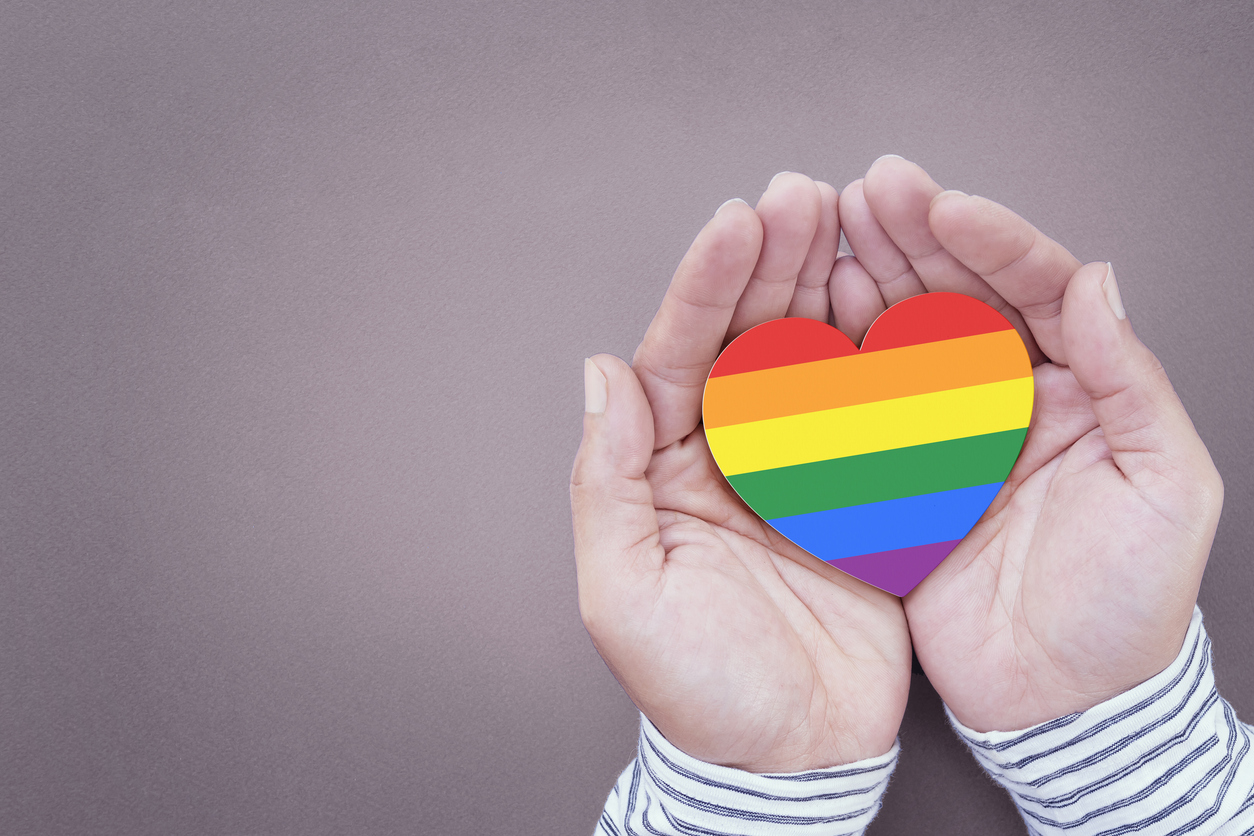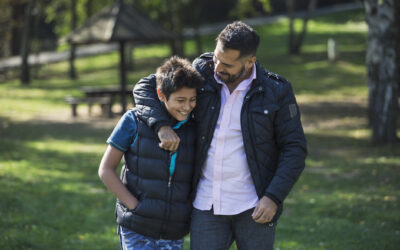After 25 years in the field of mental health, one truth has remained constant: healing cannot happen without the presence of safety, understanding and compassion.
I’ve worked with individuals from all walks of life—people grappling with anxiety, trauma, grief, relationship struggles and identity formation—and I have seen firsthand how deeply our social environments impact mental well-being. For members of the LGBTQ+ community, the world they navigate today presents both persistent challenges and newfound opportunities.
As a mental health professional practicing in New York City for almost 3 decades, I have witnessed significant shifts in cultural awareness, policy, and public discourse surrounding LGBTQ+ mental health. Yet, despite progress, the need for nuanced, individualized care remains critical. Understanding these needs requires more than clinical expertise—it demands human compassion, a willingness to listen, and an acknowledgment of the realities shaping the lives of LGBTQ+ individuals today.
The Complex Reality of Progress
In many ways, society has become more accepting of LGBTQ+ identities. Legal recognition of same-sex marriage, expanded workplace protections, and broader representation in media have all contributed to a cultural shift toward visibility and acceptance. However, prevalence and acceptance does not always equate to safety or ease. The reality remains that individuals in this community face disproportionate rates of mental health struggles, including anxiety, depression, PTSD, and suicidal ideation.
Why? Because external validation and legal protections, while crucial, do not erase internalized shame, years of discrimination, or the pain of familial rejection. They also do not shield individuals from the real consequences of political and social pushback.
In recent times, the national conversation around LGBTQ+ rights has become more polarized. Legislative changes—some protective, others restrictive—create an ever-shifting landscape where many feel their rights, safety and dignity are still up for debate. This unpredictability can be deeply destabilizing for those already vulnerable to mental health struggles and who may struggle in silence.
According the a report by the National Alliance for the Mentally Ill:
- The LGBTQ+ population is at a higher risk than the heterosexual, cisgender population for suicidal thoughts and suicide attempts.
- High school students who identify as lesbian, gay or bisexual are more than four times as likely to have attempted suicide compared to their heterosexual peers.
- 40% of transgender adults have attempted suicide in their lifetime, compared to less than 5% of the general U.S. population.
The Importance of Affirmation
One of the most crucial aspects of LGBTQ+ mental health care is affirmation. But affirmation is not just about recognizing someone’s identity—it’s about taking time and care to deeply understand the unique journey, stressors and the different barriers they have faced. It means moving beyond performative gestures of support (like rainbow logos during Pride Month) and instead fostering spaces where clients feel truly seen and heard.
This is especially important when working with LGBTQ+ youth and those questioning their identities. For these individuals, therapy must be a place free from judgment, where exploration is encouraged, not feared. But even among adults, the need for spaces of radical acceptance remains vital. Many clients have spent years masking parts of themselves to fit into workplaces, religious communities, or even their own families. Unpacking that experience takes time, patience, and trust.
At the same time, there is a delicate balance to strike. Clinicians must be careful not to reduce LGBTQ+ individuals to their identities alone. A person may be struggling with depression, but their sexuality or gender identity might not be the core issue—it may be workplace stress, grief, or trauma from past relationships. Good mental health care means treating the whole person, not just the most visible aspect of their identity.
The Reality of Trauma and Minority Stress
A concept well-documented in psychological research is minority stress—the chronic stress experienced by individuals in marginalized communities due to discrimination, stigma, and lack of social support. The LGBTQ+ community, particularly transgender and nonbinary individuals, often experience this form of stress daily.
Misgendering, workplace bias, and fears of physical harm all contribute to an ongoing sense of hypervigilance. For some, these experiences accumulate into complex trauma. The role of mental health professionals is not only to help clients cope with this reality but also to validate the weight of their experiences. Dismissing or downplaying these stressors as “not that bad” is harmful; instead, we must acknowledge how these experiences shape mental health while empowering clients with tools for resilience.
The Importance of Intersectionality
Another key consideration is intersectionality—the idea that no person’s experience exists in a vacuum. A Black transgender woman in Brooklyn faces different challenges than a white gay man in the West Village. A queer immigrant may carry cultural expectations from their family that conflict with their identity. LGBTQ+ individuals with disabilities, religious backgrounds, or lower socioeconomic status often face additional layers of marginalization.
As mental health professionals, we must ask: How do these intersecting identities shape this person’s experience of the world? Understanding these nuances allows us to provide more comprehensive, empathetic care.
Hope, Healing, and the Role of Community
Despite the challenges, I have witnessed remarkable resilience among my LGBTQ+ clients. Many find solace in chosen families, online communities, and advocacy work. The rise of LGBTQ+ mental health initiatives, support groups, and accessible therapy resources has also made a profound difference.
As professionals, our job is to help clients cultivate self-compassion, navigate the complexities of identity with confidence, and build support networks that affirm their worth. It also means challenging our own biases, continuing our education, and advocating for policies that promote mental health equity.
Most importantly, we must remember that at the heart of mental health care is a simple truth: every person deserves to be heard, valued, and supported in their journey toward well-being. No political landscape, cultural debate, or policy change should ever diminish that fundamental right.
Final Thoughts
As we move forward, it is essential to approach LGBTQ+ mental health with both realism and hope. Yes, there are still challenges—systemic, social, and personal. But there is also progress, resilience, and the possibility for meaningful healing.
For mental health professionals, the task is clear: listen deeply, affirm authentically, and meet each individual where they are, without agenda or assumption. Because at the end of the day, mental health care is about people we have the honor and privilege to serve. And every person, no matter their identity, deserves to heal.
References:
https://www.nami.org/your-journey/identity-and-cultural-dimensions/lgbtq/
https://www.cdc.gov/healthyyouth/data/abes/tables/sexual_identity.htm#MH
https://www.lgbtqiahealtheducation.org/resources/type/publication/
—————————————————————————————————
LGBTQ+ Mental Health Resources in NYC
If you or someone you know is struggling, help is available. Below are some LGBTQ+-affirming mental health resources in New York City:
🏳️🌈 The LGBT Center (The Center) NYC
📍 208 W 13th St, New York, NY 10011
☎️ (212) 620-7310
🌐 https://gaycenter.org
The Center offers LGBTQ+-affirming counseling, support groups, and mental health services, including free and low-cost therapy options.
🏳️⚧️ Callen-Lorde Community Health Center
📍 Multiple Locations: Chelsea, Bronx, Brooklyn
☎️ (212) 271-7200
🌐 https://callen-lorde.org
A healthcare provider specializing in LGBTQ+ health, offering mental health counseling, hormone therapy, and medical services in an affirming environment.
🧠 Institute for Human Identity (IHI Therapy Center)
📍 322 8th Ave #802, New York, NY 10001
☎️ (212) 243-2830
🌐 https://www.ihitherapy.org
New York’s first LGBTQ+-affirming psychotherapy center, providing sliding-scale therapy and support for individuals, couples, and families.
🫂 Trans Lifeline
☎️ (877) 565-8860 (U.S. and Canada)
🌐 https://www.translifeline.org
A peer-support hotline run by and for transgender people, offering crisis support and microgrants for name changes and other legal assistance.
💙 The Trevor Project (For LGBTQ+ Youth) – 24/7 Crisis Support
☎️ Call: (866) 488-7386
📱 Text: ‘START’ to 678-678
🌐 https://www.thetrevorproject.org
Provides crisis counseling and support specifically for LGBTQ+ youth struggling with mental health challenges, self-harm, or suicidal thoughts.
📢 NYC Well – 24/7 Mental Health Support
☎️ Call: (888) NYC-WELL (888-692-9355)
📱 Text: ‘WELL’ to 65173
🌐 https://nycwell.cityofnewyork.us
A free, confidential mental health support line for all New Yorkers, with trained counselors available 24/7 in multiple languages.
National LGBTQ+ Mental Health Resources
If you’re outside of NYC or looking for national support, here are LGBTQ+-affirming mental health resources available across the U.S.:
🏳️⚧️ Trans Lifeline (For Transgender Individuals)
☎️ (877) 565-8860 (U.S. & Canada)
🌐 https://www.translifeline.org
A peer-support hotline run by and for transgender people, offering crisis support and assistance with legal name changes, ID documents, and financial aid.
💙 The Trevor Project (For LGBTQ+ Youth) – 24/7 Crisis Support
☎️ Call: (866) 488-7386
📱 Text: ‘START’ to 678-678
💻 Chat Online: https://www.thetrevorproject.org
A crisis intervention and suicide prevention service specifically for LGBTQ+ youth under 25, available 24/7 via phone, text, and online chat.
🧠 National Suicide Prevention Lifeline (LGBTQ+ Inclusive) – 24/7 Crisis Support
☎️ Call: 988 (U.S. only)
🌐 https://988lifeline.org
Provides 24/7 free and confidential support to anyone in distress, with trained counselors experienced in LGBTQ+ mental health concerns.
🫂 LGBTQ+ National Help Center
☎️ LGBTQ+ Youth Talkline: (800) 246-7743
☎️ LGBTQ+ Adult Talkline: (888) 843-4564
📱 SAGE LGBTQ+ Elder Hotline: (877) 360-5428
🌐 https://www.glbthotline.org
Offers free and confidential peer support via phone, chat, and email for LGBTQ+ individuals of all ages, including youth, adults, and seniors.
📢 PFLAG – Support for LGBTQ+ Individuals & Families
🌐 https://www.pflag.org
The largest LGBTQ+ family and ally organization in the U.S., providing local support groups, educational resources, and advocacy for LGBTQ+ individuals and their loved ones.
💛 Strong Family Alliance (Support for Families of Trans Individuals)
🌐 https://www.strongfamilyalliance.org
A resource to help families understand, accept, and support their transgender loved ones through education and real-life experiences.
⚖️ Lambda Legal – Legal Support for LGBTQ+ Rights
🌐 https://www.lambdalegal.org
Provides legal advocacy for LGBTQ+ individuals facing discrimination in healthcare, housing, employment, and other areas.



